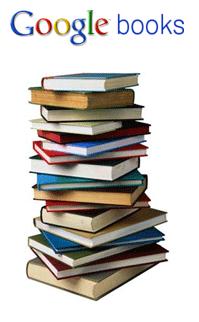Google Books search settlement: monopoly or public service?


And should Google be allowed to publish an out-of-print book whose author can't be found?
Those questions were at the heart of the debate that raged on Monday night at the Cornell Club in New York City, where experts and the public assembled to pick apart the settlement for Google Books Search.
Jonathan Jacobson, partner at Wilson Sonsini Goodrich & Rosati, joined New York University law professor Richard Epstein to argue whether the Google Books search settlement was conducted appropriately and if consumers were truly better or worse off under the settlement.
"It irritates me that it's seen as a fait accompli," said Epstein, who criticized the settlement for incorrectly using a class action to resolve standing issues. "I do not regard this as being out of the antitrust woods [yet]."
THE SETTLEMENT
The first lawsuits against Google's actions were filed three years ago. In October 2008, the parties developed and agreed to a settlement, which was amended (.pdf) and granted preliminary approval on Nov. 19, 2009.
Under the current settlement, Google allows full view and download of books in the public domain, partial preview and search of books that are in copyright by Google partners and viewable snippets and search of books that are in copyright.
Under the settlement, a "Book Rights Registry" will attempt to locate rightsholders of works published before Jan. 2009 and license their work accordingly. Google has agreed to show previews of out-of-print, in-copyright books; only indexing information of in-print books; and full view of books in the public domain. Rightsholders are permitted at any time to opt out and remove or exclude their works.
For libraries and universities, institutional subscriptions will allow them to access the complete text of titles, with royalties paid to rightsholders.
What's at stake: Are authors and consumers best served by this system? Is there a better way?
LEGAL, FAIR OR BOTH?
Jacobson rejected the idea that the settlement was in violation of antitrust laws, and said that Google's actions eliminate no existing competition and create non-exclusive products where none previously existed. He supported the settlement's provisions, and said that the settlement provides incentive for rightsholders to come forward and make profit on out-of-print works that are essentially "lost."
"We must stand up and applaud [Google] because this really is the new Library of Alexandria," Jacobson said.
Taking the side of the opposition, which includes Amazon, Microsoft, the Department of Justice and several well-known antitrust experts, Epstein criticized the settlement for binding people who didn't ask to be involved, and asked whether it was fair to expect people to make informed judgments to opt out of the process.
"I do not think an ordinary author knows what's going on in this agreement," Epstein said, adding that there were "glaring omissions" in the agreement. "This is far from a closed case."
Epstein criticized Google for not respecting authors' autonomy in the settlement, and said that Google Books "clearly can't be a universal library" the way the lawsuit has been settled.
"[Google must] get rid of the uneasy stain of illegitimacy that [occurs] with overuse of a class action," Epstein said.
Jacobson defended the settlement, saying that "opting out is easy" and that most stakeholders were aware of the settlement. In response to a question about how Google could notify the owners of orphaned works who, by definition, were owner-less, Jacobson said Google must simply show that it's trying to the best of its ability.
Epstein demurred. "This is not a settlement in which everyone agrees," he said. "This is a settlement in which key players agree and everyone else is bound."
CLASS ACTION INACTION
Several times during the debate, which grew heated at times, a woman from the audience interjected and railed against Google and the settlement.
After Jacobson rhetorically asked why copyright owners wouldn't come forward to claim and monetize their lost works, the woman replied, "because copyright does not require owners to come forward."
Jacobson noted that neither copyright law nor the Constitution address digital rights. "That is waiting for a Godot that is unlikely to come," he said.
The longer the case drags on, the more Google ought to realize that an opt-in, not opt-out, system would be more appropriate, Epstein said.
Jacobson expressed exasperation. "There is so much wrong with that I don't know where to start," he said, throwing up his hands.
Epstein said Google's desire to patch the holes that pertain to digital rights in existing copyright law for a clean settlement went one step too far. "In the last mile, you're going too far and getting too little for it," Epstein said, adding that he thought Google's actions were a "perversity."
"I just think they want too much," he said," and as an author, I wish they'd back off a little."